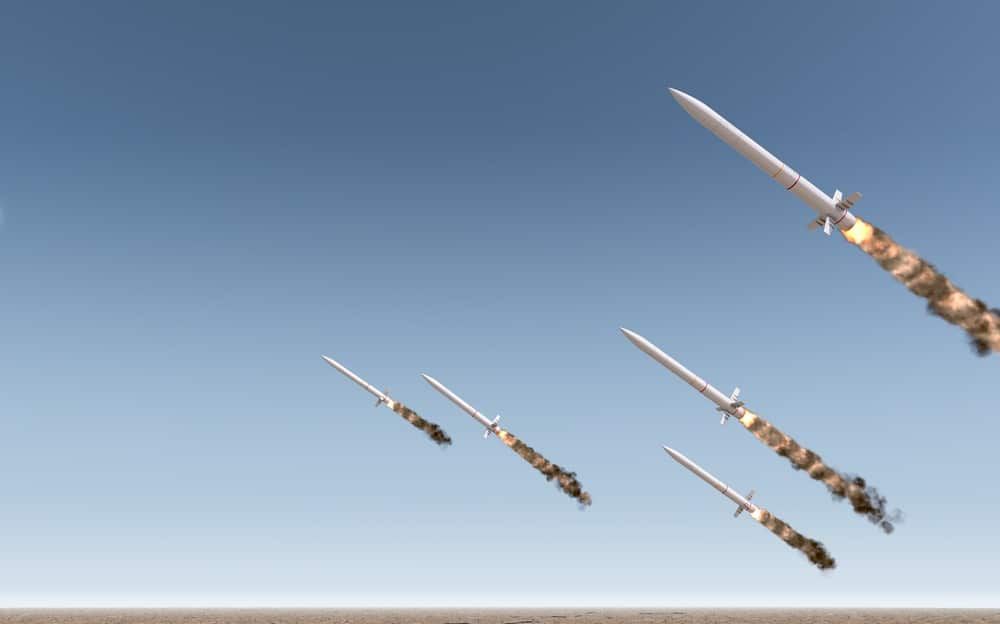Weapons of mass destruction: the Russian challenge
By Adrian Alvarado | March 7, 2017

More than 12 years have passed since the United Nations Security Council adopted Resolution 1540, which affirms that the proliferation of weapons of mass destruction is a threat to international peace and security, and recognizes the need to keep such weapons out of the hands of non-state actors—particularly extremist and terrorist groups. To deal with this common threat, UN member states pledged to adopt national legislation and establish domestic controls.
Resolution 1540 represents an enduring challenge for the Russian Federation, a country that possesses the know-how and the means to design, make, and deliver weapons of mass destruction. Russia is capable of creating nuclear, chemical, and biological weapons. To secure these capabilities, and to meet its commitments under Resolution 1540, Russia should create a special program to seek out radioactive material within Soviet-era facilities, and should work with other members of the Eurasian Economic Union to establish a common response to the threat of radicalized groups.
The real risks. Today, the most plausible risks related to weapons of mass destruction in the Russian Federation do not come from movie-like scenarios, such as an irresponsible government approach to nuclear deterrence (like that in the film “Dr. Strangelove”), or a rogue military faction using chemical weapons (as depicted in “The Rock”). Rather, the risks come from non-state actors seeking the easiest way to obtain a chemical, biological, or radiological weapon. For example, there is some evidence that the Islamic State has already obtained chemical weapons by seizing a stockpile from the Syrian government army, and has used these weapons repeatedly in the battle for the Iraqi city of Mosul.
This vulnerability to non-state actors is the reason why, during the next few years, the Russian government should develop an action plan to reassess post-Soviet civilian infrastructures. A considerable effort was already made during the first decade of this century to secure the most sensitive infrastructures (such as military facilities with nuclear warheads and materials, and nuclear power plants), but new security measures should be added to safeguard private laboratories, research centers, universities, and hospitals.
This task should be considered as a very important national interest for the Russian Federation, even if the risk is limited to a single attack with a small quantity of radiological, biological, or chemical material. Although human losses and injures can be modest during such a situation, post-attack health issues and contingency costs can be long-lasting and high.
In France, for example, the state of emergency declared after the November 2015 Paris terrorist attacks has been extended five times, most recently until July 2017. The French defense minister estimated in 2015 that the nation’s security alert system, called Vigipirate, costs about one million euros each day. There is a human cost as well: The continuing emergency grants extra powers to the police, which increases the threat to human rights and privacy.
The Paris attackers used conventional bombs and guns. A terrorist attack with a radiological weapon (such as a radioactive “dirty bomb”) would probably have a more severe psychological impact on the media, society, markets, and popular culture. In the immediate aftermath of such a disastrous attack, few people in social media or everyday life are likely to make careful distinctions between a low-yield radiological weapon and a high-yield nuclear explosion, or between the lethality of sarin gas and far more deadly Novichok-class nerve agents.
Stronger together. International cooperation is crucial if states want to enhance security levels and promote a security culture within organizations handling radioactive source materials (such as hospitals) or carrying out sensitive chemical and biological activities (such as private laboratories, universities, and research centers). Governments and their agencies have limited knowledge and financial resources, so it is essential to seek common ground where states can agree on cooperation schemes for safety and capacity building.
For the Russian government, the most immediate field of action for international cooperation and assistance is the post-Soviet space. A not-so-politically-sensitive initiative could be the creation of a special program within the framework of the Commonwealth of Independent States – the former Soviet republics excluding Ukraine, Turkmenistan, and the Baltic states – to seek lost and orphaned sources of radioactive material within Soviet-era military, industrial, medical, and research infrastructures.
Furthermore, a regional approach to effectively implement the UN Resolution 1540 mandates should be a priority for the international assistance agenda of Russia and its neighbors. An initiative within the Eurasian Economic Union – which includes Armenia, Belarus, Kazakhstan, Kyrgyzstan, and Russia – could be negotiated to agree on a common response to the threat of radicalized groups seeking to accomplish terrorist acts with weapons of mass destruction. Member states would reduce their vulnerabilities by establishing common security and export controls. A common and harmonized border control in the Eurasian Economic Union makes sense and would reinforce the political project of regional integration in this part of Eurasia.
Despite the recent crisis in relations between Russia, the United States, and the European Union, international cooperation to preclude the proliferation of weapons of mass destruction to non-state actors should continue to be a “sanctuarized” field in diplomatic channels – one that is sheltered from other disagreements in international politics. Terrorist or extremist groups with weapons of mass destruction represent not just a threat of destabilization for national governments and entire regions, but they may even endanger the very foundations of the current international order.
Editor’s note: Adrian Alvarado was one of five finalists in the Stimson Center’s United Nations Security Council Resolution 1540 International Student Essay Contest. This is an adaptation of his much longer essay for the contest.
Together, we make the world safer.
The Bulletin elevates expert voices above the noise. But as an independent nonprofit organization, our operations depend on the support of readers like you. Help us continue to deliver quality journalism that holds leaders accountable. Your support of our work at any level is important. In return, we promise our coverage will be understandable, influential, vigilant, solution-oriented, and fair-minded. Together we can make a difference.
Topics: Biosecurity, Nuclear Weapons, Voices of Tomorrow














